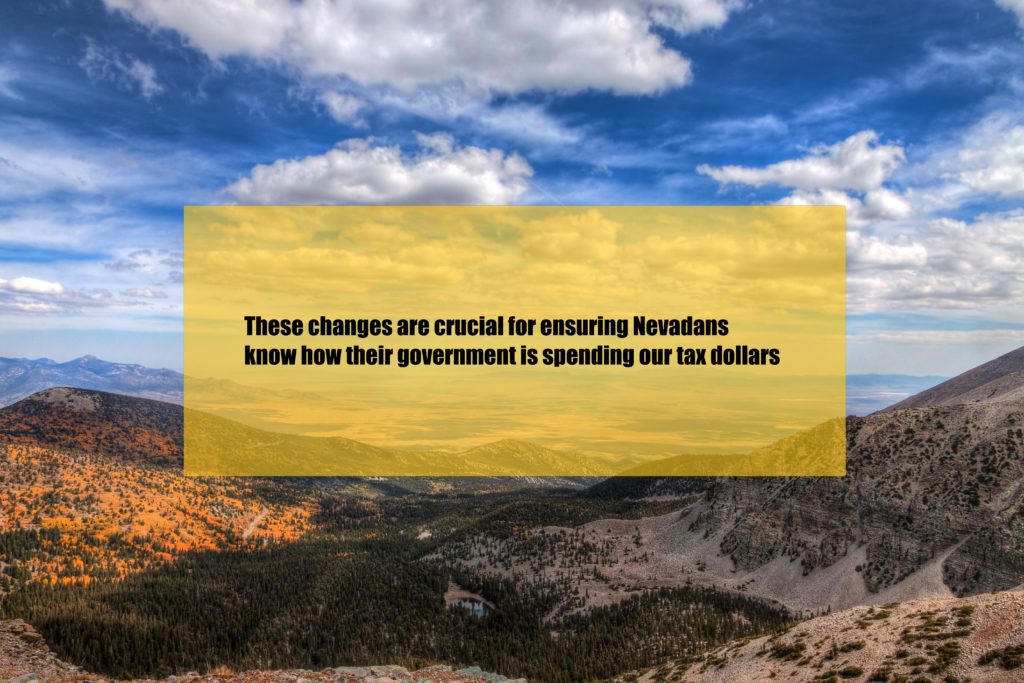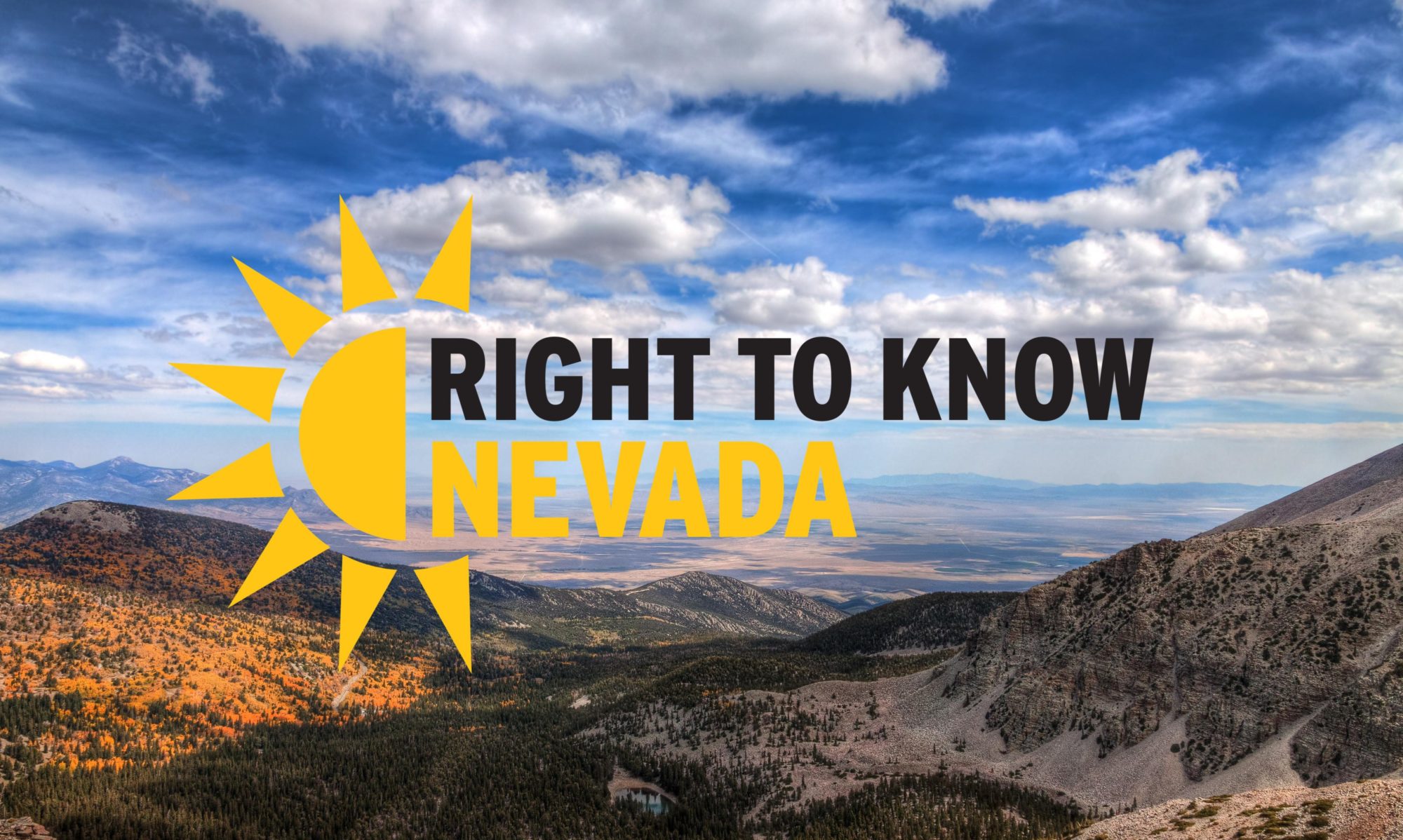Unfortunately, despite the clear mandate for government transparency under Nevada law, many state and local agency employees have decided the law doesn’t apply to them. When these agencies violate Nevadans’ right to an open and transparent government, it hurts researchers, reporters and — most of all — taxpaying citizens.
Here are just a few examples:

-
The nonpartisan Guinn Center for Policy Priorities abandoned two planned education studies because researchers couldn’t obtain the release of basic data from the Nevada Department of Education. As a result, citizens, lawmakers and education professionals were denied information that could have led to insights and improvements in public education.
-
The Washoe County School District concealed a taxpayer-funded investigation regarding allegations of bullying and harassment within its special education department.
-
A widow couldn’t get her own husband’s autopsy released from authorities.
-
A mother with a disabled son requested records to find out how he was being treated by authorities. The agency’s refusal to share the information with her left her powerless to protect her son from mistreatment.
-
The Clark County School District refused to release a copy of an employee directory and fought for years in court to keep the directory secret.
-
The Las Vegas Metropolitan Police Department refused to release basic information regarding the 1 October shooting, creating a level of secrecy and uncertainty that contributed to wild speculation and conspiracy theories in the months that followed.
-
The Nevada Department of Corrections refused to provide a list of companies that use prison labor because “people may be afraid to call on that company due to their preconceived notions,” according to a statement.
-
Former Henderson Police Chief Patrick Moers retired with full severance benefits after a law firm hired by the city found he repeatedly sexually harassed at least one employee. The city declared that report, paid for by city taxpayers, confidential and unavailable for public scrutiny.
-
UNLV suspended a maternal HIV program without warning, in part because of questions about the misuse of federal grant money. The clinic was audited, but that taxpayer-funded report has been kept secret.
-
Clark County School District officials ignored multiple requests for documented complaints against then-Trustee Kevin Child, whose alleged inappropriate behavior toward students and employees sparked an internal investigation and led to restrictions on his access to schools. The Las Vegas Review-Journal had to sue to get records released at the order of a District Court judge.
-
The Clark County coroner’s office continues to refuse to release specific autopsy reports despite a judge’s ruling that the reports are public records.
-
Henderson officials initially deemed confidential proposals, contracts and other documents pertaining to the future headquarters of the NFL’s Raiders by citing only part of a state law, which in its entirety stated such records were public.
-
The attorney general’s office last year kept secret the identities of former state government employees who were paid unused sick and vacation time when they left their jobs. Other public employers routinely provide such information.
-
The Southern Nevada Regional Housing Authority wanted $1,472 from the Review-Journal for copies of emails, attachments and audit documents.
-
A database of Nevada arrest records that was open to public inspection for decades was made secret by a state law. The Nevada Department of Public Safety, which collects the information from law enforcement agencies across the state, won approval of the new law after the Las Vegas Review-Journal requested the arrest and conviction records. The change now allows the disclosure of identifying information only if media requesters ask for the records of a specific person.
-
A public information officer for the Washoe County School District refused to disclose how many public information officers work for the district.
-
The city of Henderson refused to release the exact addresses of fatal residential fires on the grounds that doing so would violate the federal Health Insurance Portability and Accountability Act.
- The Public Employees’ Retirement System of Nevada (PERS) submitted false testimony to the court in an effort to keep secret information regarding the names of those who receive taxpayer-funded pensions. After being ultimately ordered to release this information by the Nevada Supreme Court, PERS then altered its record keeping practices in an attempt to hide that information in future years, forcing another protracted legal battle, at taxpayer expense.
